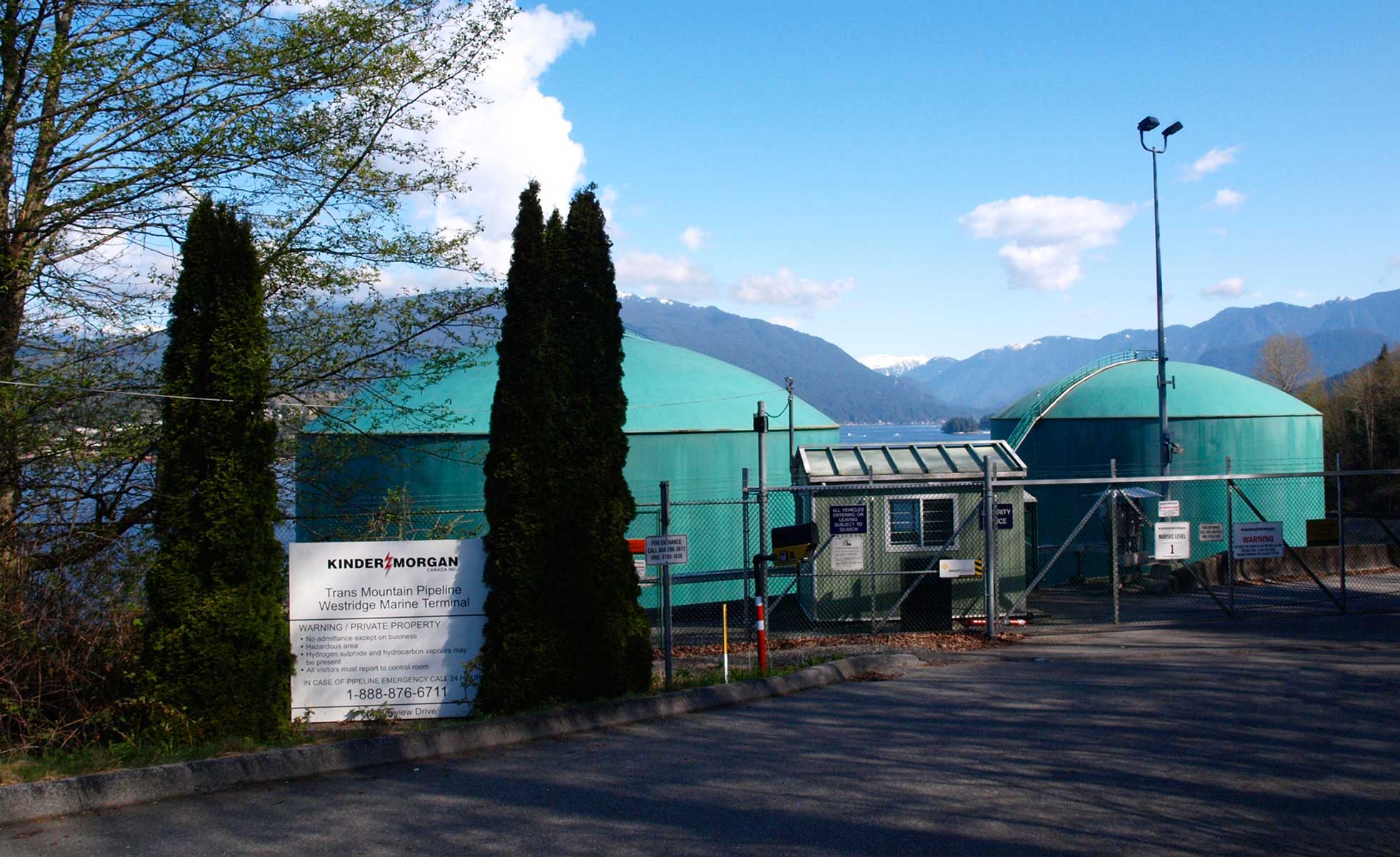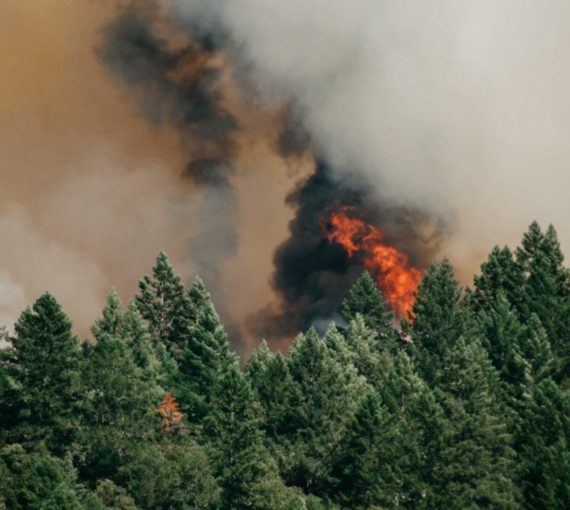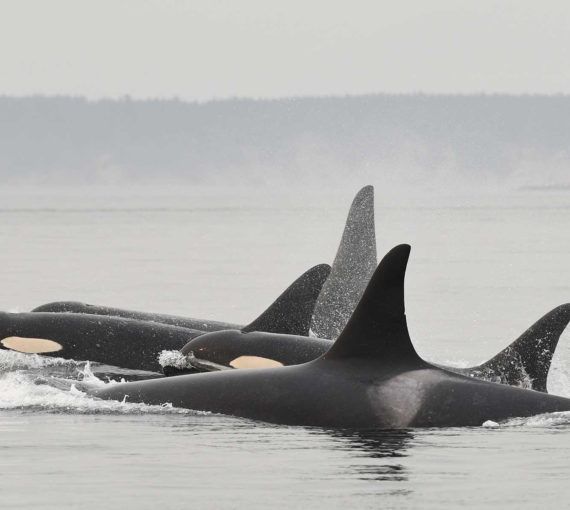
Moments after the Federal Court of Appeals struck down the Government of Canada’s approval to move ahead with the Trans Mountain pipeline expansion project, Kinder Morgan Canada's shareholders approved the sale of the pipeline, including the Westridge Marine Terminal in Burnaby, B.C., to Canada. (Photo: Jen Castro via Flickr)
Saved by the whales! The federal Appeal Court decision on August 30 to quash the government’s approval of the Trans Mountain pipeline expansion project was largely based on the National Energy Board’s failure to consider the environmental impacts of a sevenfold tanker traffic increase off the B.C. coast, including how it would affect endangered southern resident orca whales.
“The unjustified exclusion of marine shipping from the scope of the Project led to successive, unacceptable deficiencies in the Board’s report and recommendations,” the decision states. “As a result, the Governor in Council could not rely on the Board’s report and recommendations when assessing the Project’s environmental effects and the overall public interest.”
Not to diminish the efforts of Indigenous Peoples, environmental groups, politicians with integrity and citizens from all walks of life who stood strong for protection of land, air, water and climate — but it’s interesting that the whales we’re trying to save may have saved us from this anachronistic project.
Another key element was Canada’s failure to properly consult with Indigenous Peoples. The court found that, although “Canada acted in good faith and selected an appropriate consultation framework,” it “failed in Phase III to engage, dialogue meaningfully and grapple with the real concerns of the Indigenous applicants so as to explore possible accommodation of those concerns.”
It’s interesting that the whales we’re trying to save may have saved us from this anachronistic project.
The decision doesn’t spell the end of the 1,150-kilometre project. The government is determined to go ahead, with Finance Minister Bill Morneau calling it “critically important for our economy.” The court has ordered the government to redo Phase 3 of the NEB process if it wants to proceed.
Elevation of short-term economic considerations over reconciliation with Indigenous Peoples and the fact that Kinder Morgan shareholders immediately voted to accept our government’s generous offer to buy this white elephant on our behalf — for $4.5 billion! — illustrate the momentous challenges we face to transition off fossil fuels.
For some pipeline proponents, sacrificing a pod of whales is justified by the possibility of increased profits from selling oilsands bitumen to expanded markets. For many politicians and business people (and their supporters in media and business-oriented “think tanks”), economic growth is the highest aspiration and they’ve convinced many citizens no goal is more important. If that means devastated landscapes, extinction of plants and animals, polluted air and water, and climate disruption, at least the economy’s growing and jobs are being created.
Election cycles and the bottom line stand in the way of long-term thinking. The Trans Mountain project is just one of many fossil fuel developments. It was stopped because of a failure to consider impacts on the marine environment and to properly consult with Indigenous Peoples. Those are incredibly important, but so too is the fact that projects like this are predicated on expanded fossil fuel development and use, which is pushing Earth’s climate into a more unpredictable, less hospitable phase.
Projects like Trans Mountain and the expanded oilsands development on which they depend conflict with our Paris Agreement commitments to limit greenhouse gas emissions and rising global temperatures.
Projects like Trans Mountain and the expanded oilsands development on which they depend conflict with our Paris Agreement commitments to limit greenhouse gas emissions and rising global temperatures. As people choke on smoke-filled air and refugees flee drought-stricken lands, and as polar ice caps melt and sea levels rise, it often feels like we’re playing whack-a-mole with fossil fuel development. We stopped the Northern Gateway pipeline only to see Trans Mountain emerge. Keystone XL was halted by one U.S. administration and revived by the next.
It’s good that courts and governments are recognizing that they must address issues around the environment and the duty to consult with Indigenous Peoples for resource development to proceed, but there’s much to sort out in those areas. And we can’t continue to ignore the climate impacts of increasing fossil fuel development. Think what could be accomplished if the $4.5 billion Canada plans to shell out to buy Trans Mountain and the many billions more to complete the project were invested in energy efficiency and clean energy!
Until we shift from short-term economic thinking that pits the environment, Indigenous rights, species at risk and human health and well-being against short-term profit and “growth,” we’ll likely be stuck in this rut for some time.
But we don’t have time. It’s up to all of us to keep the pressure on to move away from fossil fuels.



